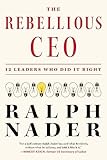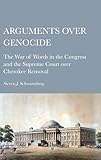What an amusing bunch of radicals on the fringes of world civilization they can seem. But the politicians of the silver fern isles do tend to surprise, and shock, from time to time. Radical measures are embraced as an antidote to size. For being miniature on the global stage is no excuse not to be heard. And at stages, they have done a rather good job of doing it.
Noisier than ever, the decision to legalise gay marriage was taken with some fanfare. “In my view, marriage is a very personal thing between two individuals,” the Prime Minister John Key observed. “And, in the end, this is part of the equality in modern-day New Zealand” (Associated Press, April 17).
Much of this move is centred about that word that never loses its nebulous form: love. This was certainly the point of the bill’s sponsor Louisa Wall. “In our society, the meaning of marriage is universal – it’s a declaration of love and commitment to a special person.”
In short, gay couples want to be like everybody else, which might make some who are married by the heterosexual code wonder why they should bother. After all, many a historical movement has sprung out seeking to eradicate marriage altogether. It has been accused as being tyrannical, mad about property and indifferent to private arrangements. Marriage, in so many cultures, across so many periods, is not about choice but about dictation.
Libertarian advocates have suggested abolishing the state-centred approach to marriage, which is why we have so many headaches in this debate. This would effectively cure any issues about gender. Privatize it, take it out of state hands, render it truly democratic. Advocates for this position include David Boaz, who wrote a striking article on the subject in Slate Magazine (April 25, 1997). The parties would be left to define the terms. The state would have no role to play other than, to, in limited capacities, enforce it. Boaz’s argument is strikingly simple in effect.
Proponents of gay marriage do their fair share of misunderstanding regarding their opponents, and much of the debate is carried on as ships in the night. They never meet, and there are often good reasons why they should.
Some of the detractors don’t matter. They oppose the move as an unnatural order, a confirmation of sickness in society. Others find reason to believe that the historical nature of marriage prevents it from being “reformed” (read abolished) by gender dabbling. Still others feel that, while there is no problem in single sex unions per se, there is a problem with associating such unions with marriage because by definition, marriage has been between a man and a woman, often to the exclusion of others (at least in the West, if we can ever use that term with certainty) for life. This was made clear in the decision of Hyde v Hyde (1866), a cut and dry common law definition that salutes Christian monogamy and sanctity.
The greatest misunderstanding of the debate about marriage is historical. While noble attempts have been made attempting to show that marriages between members of the same sex have taken place, they do little to overcome the overwhelming purpose as to why marriage developed as it did: a bond between opposite sexes to procreate. Other factors mattered too – securing a line of succession, keeping property and goods in the circle, forging alliances between states. These trumped emotional considerations. Emotion was something best left aside.
To that end love was a secondary consideration, to be kept outside the institutional framework of union. That institutional metaphor certainly struck Michel de Montaigne, whose essays reflected on marriage as “a cage: one sees the birds outside desperate to get in, and those inside desperate to get out” (Essais, III). Blissful unions in marriage were considered unusual, the stuff of dreams. For many, they still are.
The idea that love should come into it still seems modern and middle class. Much of this may well be the fundamental misunderstanding that lust is love, that the language of hormones might be an eternal statement of attraction between partners. Eternity as rhetoric, however, wears off. The better way of reading this is to see it as an exercise of choice that has the eye of the state. Others, such as Robert Louis Stevenson, had the sense of calling it a sort of friendship recognised by the police. But people have been trying since they started developing a sense of each other whether love and friendship can ever be paired within a system recognised, and indeed controlled, by the state. The jury is never going to come in with a verdict on that one. One thing is almost certain – a legal structure will always be required. Children and worldly possessions cry out for that.
The problem with the arguments against gay marriage is that, while they might be epistemologically sound, they lack bite on one vital issue: rights. It might be the case that, to take Australia as an example, single sex couples are virtually on par in the rights department with their heterosexual counterparts, at least when it comes to matters touching on the laws of divorce and property. Agreements on dividing property can be drawn up. This is hardly anything to keep one joyful and says much about what people really feel about unions.
What has happened, at least symbolically, is that the refusal to allow single sex unions into the mix has been deemed unjust. Equality is simply impossible once you start talking about gender. The history might be correct, but the policy may not be. The hope here is that removing gender from the arrangement will miraculously cure inequality, be it in form or substance. In such countries as Australia, the definition of marriage, which is, in fact, a creature of common law, has yet to be changed. Till that happens, much of the debate among the politicians is merely bottled air in need of getting out.










